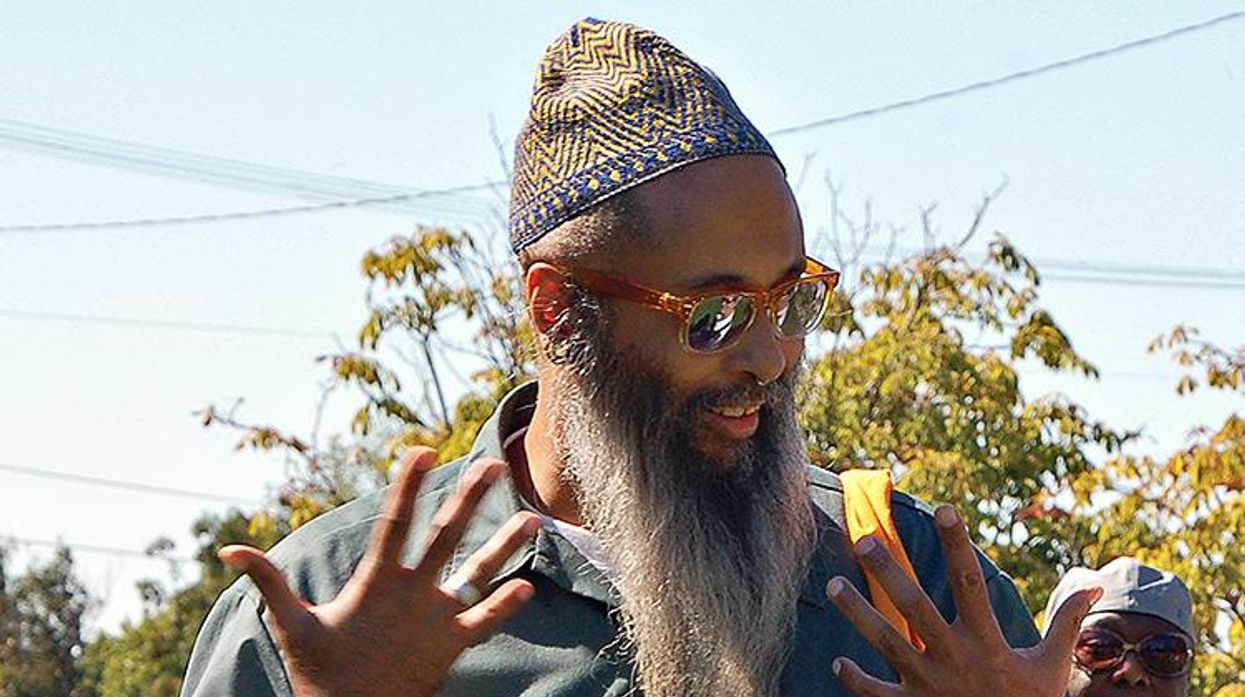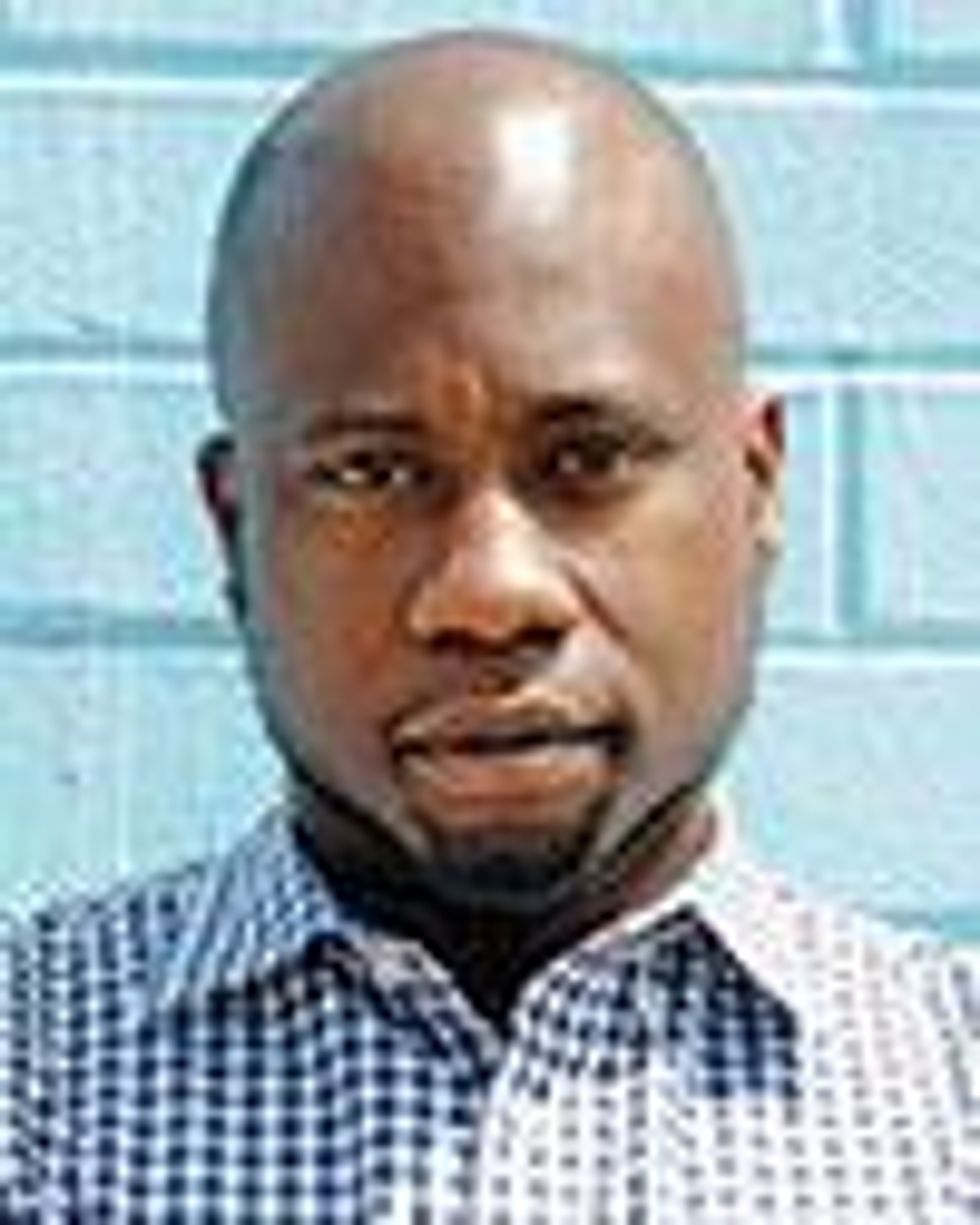Updated: Nov. 8, for clarity
I first met Ibrahim Farajaje many years after he had left Howard University. At that time, he had moved on to the Starr King School for the Ministry in California, and I was still a college kid at Georgia State University. I reached out because I saw him in the documentary Black Nations/Queer Nations? and was absolutely captivated by his thinking and ideas. The memories of his time at Howard were present long after he left, and over the course of our friendship he would transfer them to me.
If you're black and you ever critiqued the black church on homophobia or HIV injustice, Farajaje, in part, paved the way for you to do so. And in that sense, his impact on Black Queer Church Studies and HIV activism in black faith communities is still very much felt today. He helped to shape our black queer present.
Dr. Ibrahim Farajaje (formerly Elias Farajaje-Jones) joined the faculty of Howard University in January 1986, and taught there until 1996. He had been in Europe pursuing a doctorate, and when he decided he wanted his academic base to be a historically black college or university, Howard was the school he chose.
Farajaje moved to Washington, D.C., and immediately started shaking things up. For a long time he would identify as bisexual, but eventually rejected the term because he found it too confining. In Monique Moultrie's oral history interview with Farajaje for the LGBT Religious Archives Network, he said, "There's not a label I can find...I'm careful about what I say because also those words could be connected with Islamophobic reactions to them as well. I guess I will just say I don't have a label that I use now. And I don't think of myself in that way at all. I mean, I think that's part of the change that's been going on in me. It's like I embrace all."
So this queer, tall, dreadlocked, pierced, tattooed, kinky, prophetic, multilingual, and sexual outlaw brought incredible passion and vision to the Howard Divinity School.
This was also during some of the darkest moments of the HIV crisis in our community. Even now, there is yet to exist a truly detailed account of how HIV impacted black communities in the 1980s, and how we resisted. Today, you hear black gay men recall how they had to go to several funerals in a single week -- this was around the time Farajaje landed in D.C.
Farajaje taught at the Divinity School and was also very much involved in ACT UP Washington, D.C. In fact, he was one of the first religious scholars to seriously address HIV as a religious and theological issue. He developed a course for how African-American religious leaders should respond to HIV, requiring students to be trained as HIV test counselors. He also invited people living with HIV to come speak in the classroom. His students were largely conservative black preachers. He spoke often about how students would enter his class holding one set of beliefs, particularly around sexuality, and by the end, see those beliefs completely shift.
Farajaje served as the faculty sponsor for the queer political group at Howard. It was called Oxala (named for a Yoruba deity who combines genders). In this period, he would also develop a course called "The Sociology of Hetero Patriarchy." This was one of the most important foundational moments in intersectional HIV scholarship and activism. Decades before many others, Farajaje had already begun to theorize about the intersections between HIV stigma, homophobia, biphobia, Islamophobia, and other forms of oppression that shape our social world.
It is always an act of incredible courage to challenge an institution around homophobia and HIV injustice, but in the 1980s, to challenge the black church was no less an act of treason, if not heresy. And yet there are locations within D.C. religious communities that became far more inclusive only after Farajaje started teaching at Howard. This was, in part, because some of those ministers were students of his.
Many of our most important scholars and activists may never be remembered. Their contributions are felt, but not acknowledged, and their lives and sacrifices remain invisible. This is particularly true for those among our tribe that resist assimilation and respectability, and embrace scholarship and activism. Farajaje, who died at 63 in 2016, was one who paid this price. Not only did he leave behind his longtime partner Katherine, and sons Issa and Kuji, but his visionary work has largely been marginalized because he refused to conform. So much of what he was doing 20 and 30 years ago are the things we still talk about and engage today. That is why we must remember him, we must call his name, and we must channel his brilliance, because he was offering approaches, solutions, and answers to the challenges we still experience today.
 Contributing editor CHARLES STEPHENS is an Atlanta-based writer and activist. He is the executive director of the Counter Narrative Project. Follow him on Twitter: @CharlesDotSteph
Contributing editor CHARLES STEPHENS is an Atlanta-based writer and activist. He is the executive director of the Counter Narrative Project. Follow him on Twitter: @CharlesDotSteph


 Contributing editor CHARLES STEPHENS is an Atlanta-based writer and activist. He is the executive director of the Counter Narrative Project. Follow him on Twitter:
Contributing editor CHARLES STEPHENS is an Atlanta-based writer and activist. He is the executive director of the Counter Narrative Project. Follow him on Twitter: 

































































Charlie Kirk DID say stoning gay people was the 'perfect law' — and these other heinous quotes